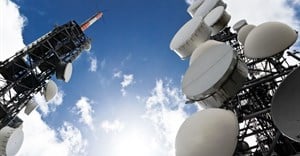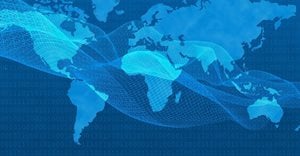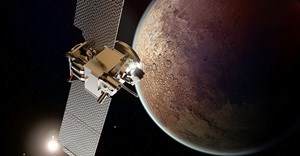Africa has come a long way in its digitisation journey from mobile telephony to broadband - connecting and digitising entire sectors economies, jobs, education, healthcare, government and societies.
In light of the revolutionary technological advances that are changing the African continent, a comprehensive technology framework needs to be in place to put Africa at the forefront of digital transformation.
There is overwhelming evidence linking ICT investment in infrastructure, economic growth and job creation. The ICT sector in Africa continues to demonstrate dynamic growth, particularly driven by the mobile sector. The view is that the majority of infrastructure investment will be done by the mobile industry.
Mobile Network Operators (MNOs), infrastructure manufacturers and ICT service providers, have played a crucial part in enhancing 4G networks in Africa and paving the way for next generation of mobile connectivity. The latest mobility data shows a gradual transition to the latest technology and today 55 percent of mobile subscriptions globally are running on 4G/LTE. In Sub-Saharan Africa, LTE accounted for around 11 percent of subscriptions in 2019.
At this turning point, Ericsson is proud to contribute to this journey and use advanced technology to enable rapid improvements in industrial production, societal services and people’s way of living and interacting with their environment.
Modernising Africa’s networks
As quarantine restrictions continue to shutter workplaces around the globe, fixed and mobile networks have become a critical source of support for enterprises. The ability of mobile networks to meet this unprecedented demand proves the reliability and robustness of today's mobile technologies.
The 4G network provided Africa’s mobile users with faster data speeds, high-quality video conferencing and faster response times when using mobile applications or accessing the internet. It also helped service providers meet demand for mobile data, which is rising every year as customers move to adopt data-hungry smartphones, mobile modems and tablets.
In addition, the app economy that emerged following 4G deployment profoundly changed the conditions for business across both B2B and B2C markets and led to the formation of new enterprise powerhouses across e-commerce, mobile video and social media. In less than a decade we witnessed dramatic industrial change that delivered significant economic and social benefits in Africa.
Just like 4G/LTE is the workhorse and innovation platform for countless consumer smartphone services, the 5G platform is capable of delivering user experiences and efficiency for both consumers and demanding enterprises. With greater capacity, higher data speeds and reduced latency, 5G will power new experiences for Africa’s mobile customers, from gaming and entertainment services, to IoT and business applications.
Ericsson is working with key service providers across the African continent, helping them create new services, new customer bases and new digital ecosystems. At the forefront of the digital transformation, MTN selected Ericsson a primary vendor for the deployment of a live 5G network in South Africa. In a related development, Telma Madagascar switched on their 5G commercial network to offer subscribers high-speed services enabled by the new generation of mobile connectivity.
Ericsson is proud to contribute to Africa’s journey to building communication capabilities of the future and complement its efforts towards a vibrant digital economy. As a partner, we are deploying next-generation technology with built-in customisations and innovations to deliver rich consumer experience while building a robust, future-proof network. Our solutions help African service providers to automate, manage, and orchestrate hybrid networks in real time, while they engage digitally with customers and monetize improved customer experiences.











